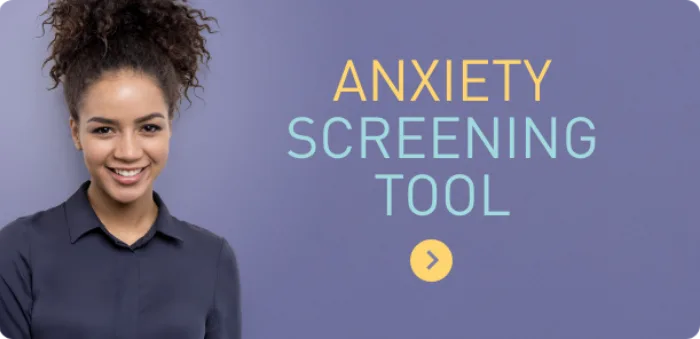Anxiety
There is hope
Your brain always buzzing, constantly self-critical and second-guessing every action and comment. Heart racing. Wondering whether you’ve said something wrong. Convinced that your friends don’t like you. The walls feel like they’re closing in. And you’re gripped by panic—for no reason at all.
Anxiety doesn’t have to own you. There is hope. With help, you can learn to control your anxiety and enjoy your life.
Understanding anxiety
Anxiety disorder (AD) occurs when fear and worry become sufficiently frequent and intense that they negatively affect your quality of life. AD is often associated with feeling chronically tense, having trouble sleeping, irritability, difficulty concentrating and irrational thoughts. You may also experience physical symptoms such as rapid breathing and heart rate, cold, clammy hands and feet, muscle tension, change in skin temperature, digestive system complaints or episodes of dizziness.
ANXIETY IS A NORMAL EMOTION
Anxiety is a natural bodily reaction to stress. We all experience it to some extent, especially when we feel nervous or keyed up about meeting new people, taking an important exam or starting a new job. A person with Anxiety Disorder experiences anxiety at a much higher level.
ARE ANXIETY AND FEAR THE SAME THING?
Not exactly. Fear is a normal response to danger! Being fearful can keep us safe by keeping us “on alert” to things around us. Fear can prompt the “fight or flight response” that may save us in a dangerous situation. A person with AD may experience chronic fears that overtake their wellbeing.
WHEN ANXIETY BECOMES DEBILITATING
Anxiety can become debilitating when it escalates to a level of excessive nervousness or worry that is unfounded. It can cause you to second-guess your relationships, your conversations and your competency. You may know it is irrational, but the fear is real anyway. This is AD. And you can beat it.
Anxiety
101
An overview of anxiety disorders, including symptoms, risk factors and treatment
Navigating Anxiety
Additional information on anxiety and discussion groups
Living with Anxiety
Techniques for dealing with anxiety that you can do right now
Help with Anxiety
5 short-term and 6 long-term ways to cope with anxiety
